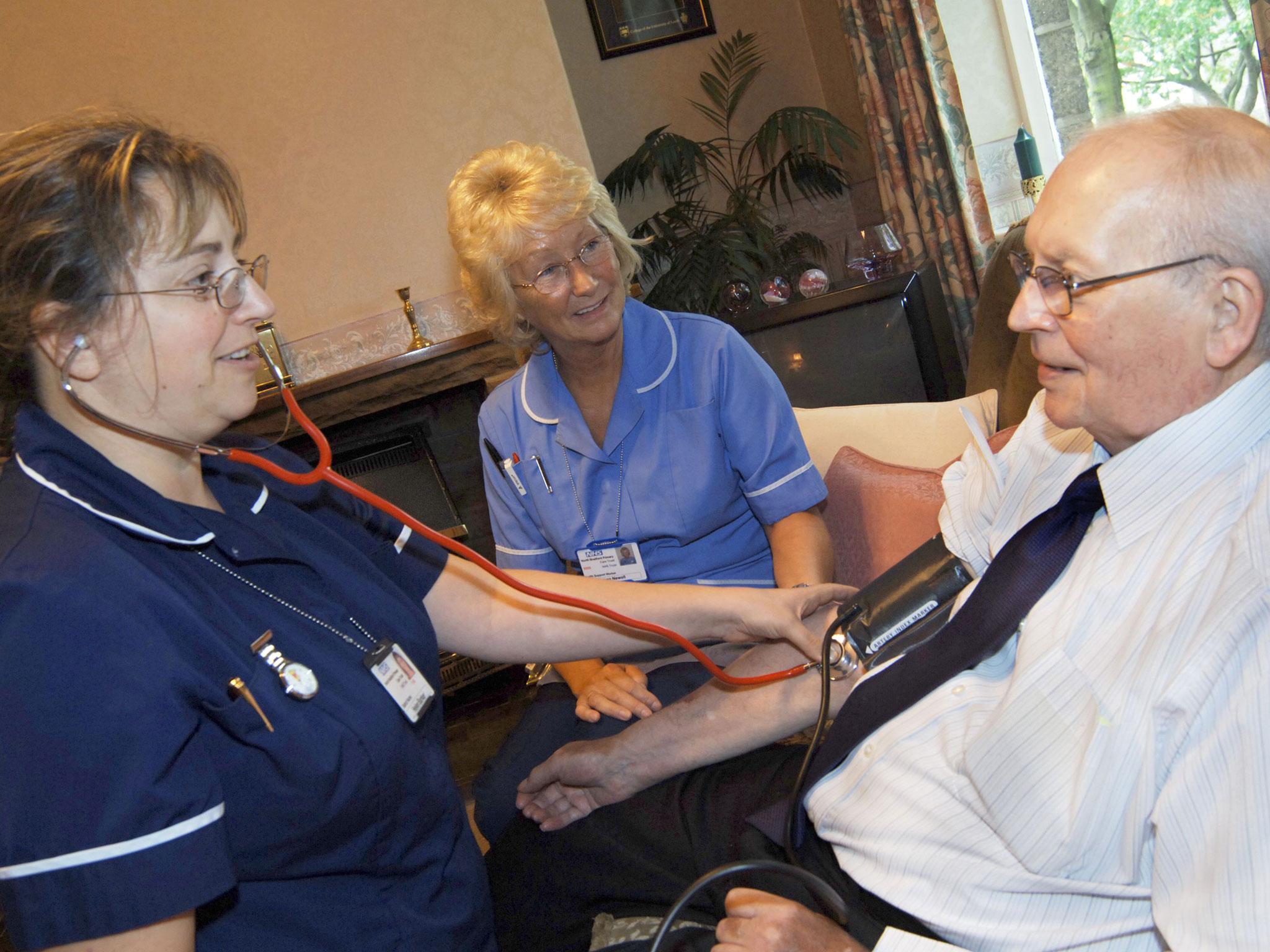District nurses could be a thing of the past in 10 years without urgent action, warns Royal College of Nurses
The shortage comes despite longstanding commitments from the Government to hugely expand the scope of care in the home and community

There could be no more district nurses in the England within a decade, the Royal College of Nursing (RCN) has said, in an unprecedented warning over the future of the profession.
The number of district nurses – specially qualified staff trained to deliver care in people's homes, described as the “glue” of the entire community care system – has nearly halved in England over the past decade.
Now research carried out by the RCN has revealed that more than a third of district nurses are over 50 and coming up to retirement age, while local health commissioners are failing to bring through enough new recruits.
There were more than 12,600 district nurses in 2003, and number which had plummeted to less than 6,700 in 2013.
The shortage comes despite longstanding commitments from the Government to hugely expand the scope of care in the home and community – a reform which is seen as crucial if the NHS is to survive into the next century, as the population ages and the number of people living with long-term health conditions such as diabetes, dementia and Parkinson's grows.
District nurses can also play a key role in end of life care, ensuring that patients are able to die at home with their families. But the service is now seriously over-stretched, the RCN said, with many district nurses seeing more than 12 patients in a single day and, in rural areas, often driving up to 70 miles per shift.
A lack of any district nurses would not mean the end of home care visits, but would lead a serious disintegration of the community care system, the RCN said, which often requires many different organisations and individuals – including GPs, healthcare assistants and social workers – to operate in tandem, often with a district nurse serving as de facto manager.
Dr Peter Carter, general secretary of the RCN, said that district nurses were the “foundation of a system which should be able to manage conditions and keep sick and frail people at home”.
“Remove those foundations and the whole edifice could come crashing down,” he said. “The NHS and the people who run it, have long paid lip service to the ideal of moving care closer to home. But many people up and down the country are still in need of expert care from district nurses.”
The devolved healthcare systems in Scotland and Wales are experiencing similar problems. In Scotland 44 per cent of district nurses are over 50, with RCN representatives warning that there would soon be too few to care for patients in the community safely, while the RCN in Wales said that district nursing services are under threat from “lack of investment and soaring patient demand”.
England's Department of Health said it was “looking specifically at what we can do to increase the number of community nurses” and pledged to train “10,000 more frontline community staff by 2020”, although this number could include staff without the qualifications of a district nurse.
Subscribe to Independent Premium to bookmark this article
Want to bookmark your favourite articles and stories to read or reference later? Start your Independent Premium subscription today.

Join our commenting forum
Join thought-provoking conversations, follow other Independent readers and see their replies